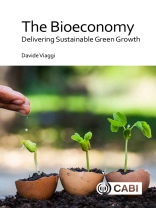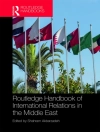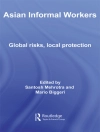The ‘bioeconomy’ is the idea of an economy based on the sustainable exploitation of biological resources. Within this concept, there is increasing emphasis on issues such as climate change, depletion of natural resources and growing world food needs. The bioeconomy builds on the recognition of advances in technology, particularly in the life sciences, but at the same time covers issues such as innovation management, ecosystem services, development and governance.
This book explores the development of the bioeconomy across the world from an economic and policy perspective, as well as identifying potential future pathways and issues. It uses a broad definition, covering all sectors using biological resources except health, and rather than focusing on individual sectors, it explores the breadth of interconnections that make the bioeconomy a new and challenging subject.
Divided into two parts, the book initially outlines the current definitions, strategies, policy and economic information related to the world’s bioeconomy. The second part describes current economic analysis and research efforts in qualifying and understanding the economics of the bioeconomy. This includes the contributions of technology, research and innovation; driving forces and demand-side economics; supply-side economics, and the role of markets and public policy in matching demand and supply. The political economy, regulation and transitions are considered, as well as the contribution of the bioeconomy to society, including growth, development and sustainability.
Key features include:
– An analysis of varied international approaches to the bioeconomy.
– A joint consideration of biotechnology, agriculture, food energy and bio-materials.
– An assessment of sustainability in the bioeconomy.
– A comprehensive view of the issues from an economic and policy perspective.
This book will be of interest to students and researchers in agricultural and natural resource economics, agricultural and environmental policy, as well as policy-makers, practitioners and economists.
关于作者
Davide Viaggi has a degree in Agricultural Sciences and a Ph D in Agricultural Economics and Policy. He is now Associate Professor in Agricultural Economics at the University of Bologna. His research focuses primarily on: i) Agricultural policy evaluation; ii) public goods and agri-environmental policy; iii) Economics of the bioeconomy; iv) Innovation in agriculture and food; v) Farm investment behaviour; vi) Irrigated agriculture, water resource evaluation and management; vii) Environmental impact assessment and resource economics. He has received project funding from the European Commission (22 projects altogether in fp5, fp6, fp7 and H2020), the Italian Ministry of University and a number of private organisations. Davide has coordinated two research projects in fp7 (CAP-IRE and CLAIM) and one in H2020, SC2 (PROVIDE). His work has been presented in more than 400 publications, including 70 publications indexed in Web of Science and 87 in Scopus. From 2011 to 2016, Davide was Editor-in-chief of the journal Bio-based and applied economics. Davide has provided his expertise as an advisor and evaluator for several national and international institutions, including the European Commission, the ETP Food for Life and the PPP BBI. He was a member of the European Commission expert group supporting the evaluation of the EU Bioeconomy strategy in 2011.












